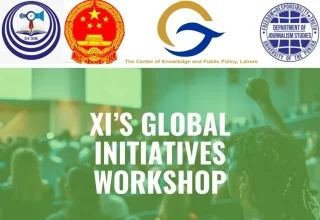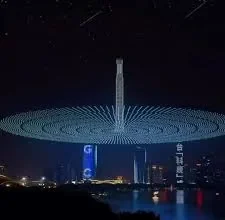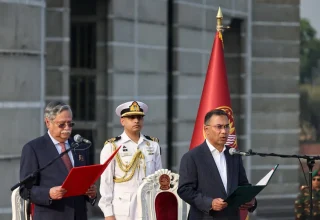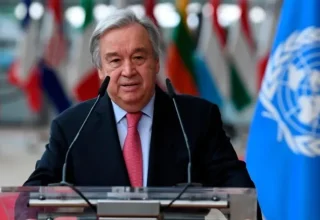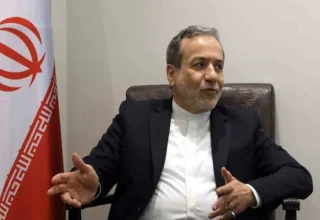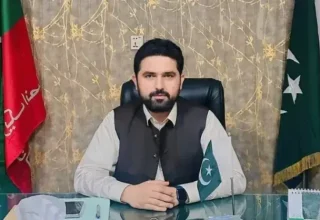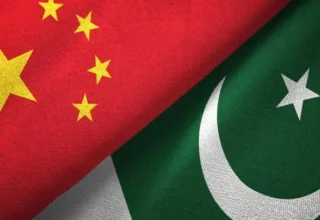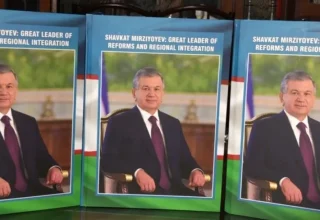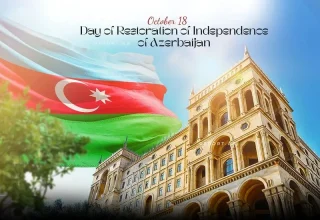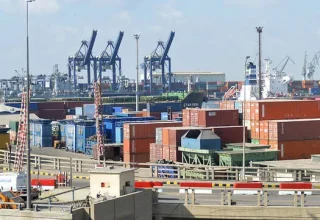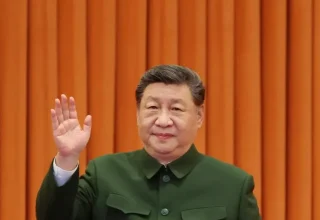
After ongoing bloody Middle East episodes, worrisome South Asia and uncertain South East Asia, at last the world has witnessed a real peace event at White House. The Azerbaijan-Armenia peace deal would boost bilateral economic ties after decades of conflict and move them toward a full normalization of relations.
Fighting for more than 35 years has now been ended with the help of US President Donald Trump coordinating both leaders of South Caucasus to bring peace in their countries and harmony in their societies, marginalizing socio-economic decline and political chaos.
It has very serious socio-economic, geopolitical and geo-strategic ramifications and the upcoming meeting between Presidents Trump and Putin in Alaska would now be more useful and effective to bring peace and end the ongoing Russia-Ukraine war. Thus Azerbaijan-Armenia peace deal is not a strategic defeat to Russia but a smart geo-political and geo-strategic move/bargain to gain and secure lion share in occupied areas of Ukraine.
It seems that Azerbaijan’s President Ilham Aliyev’s better diplomatic efforts have convinced Armenia’s Prime Minister Nikol Pashinyan to sign a historic peace deal at the White House in front of US President Donald Trump further vividly reflecting his coordinated efforts for regional peace, stability and harmony.
It will open new phase of regional reconciliation, socio-economic integration, trans-regional connectivity and fostering bilateral/trilateral cooperation in the diverse sectors of economy, industry, supply chains and people-to-people contacts burying chronic discrimination with immense development, racial genocide with greater multiculturalism and last but not least, hatred with harmony in South Caucasus and beyond. Hence it would be a giant step of greater regional integration removing Armenian isolation providing better conditions for survival, progress, prosperity and connectivity.
Hopefully, the deal, if it holds, would end almost four decades of tensions and conflict between the two nations over control of Karabakh in southwestern Azerbaijan.
While addressing journalists in a joint media conference at White House, Azerbaijan President Aliyev termed it writing a great new history and thanked Trump for bringing “peace” to the Caucasus region.
On his part, Armenia’s Pashinyan dubbed it “opening a chapter of peace,” calling it a success “for our countries and for our region.” He also commended Trump for his “legacy as a statesman and the peacemaker.”
The US President Donald Trump said all three of them had an “extensive” conversation and had signed “voluminous documents” related to a peace deal. He labeled Azerbaijan and Armenia great friends clearly demonstrating his global desire of peace, progress and prosperity and resolving conflicts through peaceful conflict resolution.
It is a good omen that the US President guarantees peace through stopping fighting, opening-up diplomatic relations and observing mutual respect for each other’s territorial integrity. Moreover, lifting of the US restrictions on its military cooperation with Azerbaijan would be a value addition for its safety and security in the days to come.
Obviously, the peace deal is a giant step of the establishment of a trade and transit corridor through the South Caucasus, which is to be named as “Trump Route for International Peace and Prosperity”. Definitely, this proposed route will connect Azerbaijan and its autonomous Nakhchivan exclave, which are separated by a 32-kilometer-wide (20-mile-wide) strip of Armenian territory. In the past, Aliyev has demanded that Armenia give his country a railroad corridor to Nakhichevan. Armenia wanted to have control of the road and the said issue has halted and stalled previous peace negotiations.
Interestingly, the peace deal empowers USA exclusive development rights to the transit corridor, which the White House said would facilitate greater exports of energy and other resources in the region. Moreover, the US signing of a bilateral agreement with both countries to expand energy and technology trade would further brighten the economic and industrial potential of Azerbaijan and Armenia in the days to come.
It seems that Minsk Group, a now-defunct mediation body under the Organization for Security and Cooperation in Europe would become inactive and should be dissolved.
Many prominent regional security experts are of the view that this peace deal may also signify the US geopolitical and geo-strategic expansion and influence in the region at the expense of Russia. Ironically for more than a century, the Kremlin has played the role of power and peace broker there. Moreover, lifting of restrictions on defense cooperation between Azerbaijan and the United States, a development that could also worry Moscow.
Evidently, the most recently signed peace deal has projected Trump as a global peacemaker in the first months of his second term. The White House credits him with brokering a ceasefire between Cambodia and Thailand and sealing peace deals between Rwanda and the Democratic Republic of the Congo, and Pakistan and India.
Interestingly, Iran welcomed the agreement “as an important step toward lasting regional peace”, but warned against any foreign intervention near its borders that could “undermine the region’s security and lasting stability”.
In summary, the US facilitated peace deal between Azerbaijan and Armenia would be a giant step towards full normalization of diplomatic ties, political cooperation, economic coordination and last but not least, social collaboration to overcome wounds of the past full of discrimination and genocides.
It is another step towards Azerbaijan’s peace persuasions of greater trans-regional connectivity, socio-economic integration and people-to-people connectivity in South Caucasus and beyond. The strategic role and geographic status of Azerbaijan being the connecting hub would be further strengthened transforming its macro-economy, industries and productive channels in future.
The writer emphasizes that peace and stability of the region may heavily depend on the US continued engagement negating any external aggression in the days to come.
It is indeed a powerful signal to the entire region and of course Russia because the peace deal marked the end to the first of several frozen conflicts on Russia’s periphery since the end of the Cold War.
The welcoming statements of a number of global figures showing the emergence of new power chess in the region and beyond. The UK’s foreign secretary, David Lammy, congratulated Armenia and Azerbaijan “on the bold steps taken in Washington”, as well as commending Trump for his role in the development.
The presidents of the European Commission and the European Council, Ursula von der Leyen and António Costa, also hailed the deal and called for its speedy implementation, in order for the countries to move towards “full-fledged normalization”.
Geo-economically, this proposed route will also provide Azerbaijan a more direct link to Türkiye and onward to Europe. It would be a shortened route for the supplies of oil and gas to Europe.
Hopefully, the peace deal could transform the South Caucasus in terms of economies, industries, societies, systems and last but not least their energy resources.






